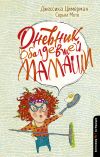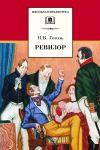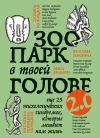Текст книги "Five Quarters of the Orange / Пять четвертинок апельсина"

Автор книги: Джоанн Харрис
Жанр: Современная зарубежная литература, Современная проза
Возрастные ограничения: +16
сообщить о неприемлемом содержимом
Текущая страница: 11 (всего у книги 48 страниц) [доступный отрывок для чтения: 16 страниц]
It didn’t take long for sleeplessness to take its toll on me. I began to lose concentration during the daytime. I forgot recipes. I couldn’t remember whether I’d already salted the omelette, and salted it twice or not at all. I cut myself seriously as I was chopping onions, only realizing I’d been asleep on my feet when I awoke with a handful of blood and one of my fingers gaping. I was abrupt with my remaining customers, and even though the loud music and the motorcycles seemed to have quieted down a little, word must have got around, because the regulars I had lost didn’t come back. Oh, I wasn’t entirely alone. I did have a few friends who took my part, but the deep reserve-the constant feeling of suspicion-that had made Mirabelle Dartigen such a stranger in the village must be in my blood too. I refused to be pitied. My anger alienated my friends and frightened my customers away. I existed on rage and adrenaline alone.
Oddly enough, it was Paul who finally put a stop to it. Some weekday lunchtimes he was my only customer, and he was regular as the church clock, staying for exactly an hour, his dog lying obediently under the chair, watching the road in silence as he ate. He might have been deaf, for all the notice he took of the Snack-Wagon, and he rarely said anything to me except hello and good-bye.
One day he came in but didn’t sit down at his usual table, and I knew something was wrong. It was a week after the fox in the henhouse, and I was dog-tired. My left hand was bound up in thick bandage after I’d cut myself, and I’d had to ask Lise to prepare the vegetables for the soup. I still insisted on making the pastry myself-imagine having to make pastry with a plastic bag mittened over one hand-and it was hard work. Standing half asleep on my feet at the kitchen door, I barely returned Paul’s greeting. He looked at me sideways, taking off his beret and stubbing out his small black cigarette on the doorstep.
“Bonjour, Madame Simon.”
I nodded and tried to smile. The fatigue was like a sparkling gray blanket over everything. His words were a yawning of vowels in a tunnel. His dog went to lie under their table at the window, but Paul stayed standing, his beret in one hand.
“You don’t look well,” he observed in his slow way.
“I’m all right,” I said shortly. “I didn’t sleep too well last night, that’s all.”
“Or any night this month, I’d say,” said Paul. “What is it, insomnia?”
I gave him a sharpish look. “Your dinner’s on the table,” I said. “Chicken fricassée and peas. I won’t be heating it up for you if it gets cold.”
He gave a sleepy smile.
“You’re beginning to sound like a wife, Madame Simon. People will talk.”
I decided that this was one of his jokes and ignored it.
“Perhaps I can help,” insisted Paul. “It isn’t right for them to treat you this way. Somebody ought to do something about it.”
“Please don’t trouble yourself, monsieur.”
After so many broken nights I could feel tears coming closer to the surface by the day, and even this simple, kind talk brought a stinging to my eyes. I made my voice dry and sarcastic to compensate, and looked pointedly in the opposite direction. “I can deal with it perfectly well by myself.”
Paul remained unquelled.
“You can trust me, you know,” he said quietly. “You should know that by now. All this time…”
I looked at him then, and suddenly I knew.
“Please, Boise…”
I stiffened.
“It’s all right. I haven’t told anyone, have I?”
Silence. The truth stretched between us like a string of chewing gum.
“Have I?”
I shook my head. “No. You haven’t.”
“Well, then.” He took a step toward me. “You never would take help when you needed it, not even in the old days.” Pause. “You haven’t changed that much, Framboise.”
Funny. I thought I had.
“When did you guess?” I asked at last.
He shrugged.
“Didn’t take long,” he said laconically. “Probably the first time I tasted that kouign amann of your mother’s. Or maybe it was the pike. Never could forget a good recipe, could I?”
And he smiled again beneath his drooping mustache, an expression that was both sweet and kind and unutterably sad at the same time.
“It must have been hard,” he commented.
The stinging at my eyes was almost unbearable now. “I don’t want to talk about it,” I said.
He nodded. “I’m not a talker,” he said simply.
He sat down then to eat his fricassée, stopping occasionally to look at me and smile, and after a while I sat down next to him-after all, we were alone in the place-and poured myself a glass of Gros-Plant. We sat in silence for a time. After a few minutes I laid my head down on the tabletop and wept quietly. The only sounds were my weeping and those of Paul’s cutlery as he ate reflectively, not looking at me, not reacting. But I knew his silence was kind.
When I had finished I wiped my face carefully on my apron.
“I think I’d like to talk now,” I said.
6Paul is a good listener. I told him things I never meant to tell a living soul, and he listened in silence, nodding occasionally. I told him about Yannick and Laure, about Pistache and how I had let her go without a word, about the hens, the sleepless nights, and how the sound of the generator made me feel as if ants were crawling inside my skull. I told him of my fears for the business, for myself, my nice home and the niche I had made for myself among these people. I told him of my fear of growing old, of how the young today seemed so much stranger and harder than we had ever been, even with what we had seen during the war. I told him of my dreams, of Old Mother with a mouthful of orange and of Jeannette Gaudin and the snakes, and little by little I began to feel the poison inside me drain away.
When at last I finished, there was silence.
“You can’t stand guard every night,” said Paul at last. “You’ll kill yourself.”
“I have no choice,” I told him. “Those people, they could come back any time.”
“We’ll share watches,” said Paul simply, and that was that.
7I let him have the guest room now that Pistache and the children were gone. He was no trouble, keeping to himself, making his own bed and keeping things tidy. A lot of the time you’d hardly have noticed him, and yet he was there, calm and unobtrusive. I felt guilty that I had ever thought him slow. In fact he was quicker than I was in some ways; certainly it was he who finally made the connection between the Snack-Wagon and Cassis’s son.
We spent two nights watching for trespassers – aul from ten till two, and I from two till six – and already I was beginning to feel more rested and more able to cope. Just sharing the problem was enough for me just then; just knowing there was someone else… Of course, the neighbors began to talk almost at once. You can’t really keep a secret in a place like Les Laveuses, and too many people knew that old Paul Hourias had left his shack by the river to move in with the widow. People fell silent as I came into shops. The postman winked at me as he delivered letters. Some disapproving glances came my way, mostly from the curé and his Sunday-school cronies, but for the most part there was little but quiet, indulgent laughter. Louis Ramondin was heard to say that the widow had been behaving strangely in recent weeks, and now he knew why. Ironically, many of my customers came back for a while, if only to see for themselves whether the rumors were true.
I ignored them.
Of course, the Snack-Wagon hadn’t moved, and the noise and nuisance from the daily crowds did not abate. I’d given up trying to reason with the man, the authorities, such as they were, seemed uninterested, which left us – Paul and I – with only one remaining alternative. We investigated.
Every day Paul took to drinking his lunchtime demi at La Mauvaise Réputation, where the motorcyclists and the town girls came. He questioned the postman. Lise, also helped us, even though I’d had to lay her off for the winter, and she set her little brother, Viannet, onto the case too, which must have made Luc the most watched man in Les Laveuses. We found out a few things.
He was from Paris. He’d moved to Angers six months ago. He had money and plenty of it, spending freely. No one seemed to know his last name, though he wore a signet ring with the initials L. D. He had an eye or two for the girls. He drove a white Porsche, which he kept at the back of La Mauvaise Réputation. He was generally reckoned to be all right, which probably meant he bought a lot of rounds.
Not a great deal for our trouble.
Then Paul thought of inspecting the Snack-Wagon. Of course I’d done that before, but Paul waited until it was closed and its owner was safely in the bar of La Mauvaise Réputation. It was sealed, locked, padlocked, but at the back of the trailer he found a small metal plate with a registration and a contact telephone number inscribed on it. We checked the telephone number and traced it… To the restaurant Aux Délices Dessanges, Rue des Romarins, Angers.
I should have known from the start.
Yannick and Laure would never have given up so easily on a potential source of income. And knowing what I did now, it was easy to see where I’d recognized his features. That same slightly aquiline nose, the clever, bright eyes, the sharp cheekbones… Luc Dessanges. Laure’s brother.
My first reaction was to go straight to the police. Not to our Louis but to the Angers police, to say I was being harassed. Paul talked me out of it.
There was no proof, he told me gently. Without proof there was nothing anyone could do. Luc hadn’t done anything openly illegal. If we could have caught him, well, that would have been something else, but he was too careful, too clever for that. They were waiting for me to cave in, waiting for just the right moment to step in and make their demands. – If only we could help you, Mamie. Just let us try. No hard feelings.
I was all for taking the bus to Angers there and then. Find them in their lair. Embarrass them in front of their friends and customers. Screech to all and sundry that I was being hounded, blackmailed-but Paul said we should wait. Impatience and aggression had already lost me more than half my customers. For the first time in my life, I waited.
8They came calling a week later.
It was Sunday afternoon, and for the past three weeks I had closed the crêperie on Sundays. The Snack-Wagon too was closed – he followed my own opening hours almost to the minute – and Paul and I were sitting in the yard with the last of the autumn sun warming our faces. I was reading, but Paul – never a reader in the old days – seemed content to sit doing nothing, occasionally looking at me in that mild undemanding way of his or maybe whittling at a piece of wood.
I heard the knock, and went to answer the door. It was Laure, businesslike in a dark-blue dress, with Yannick in his charcoal suit behind her. Their smiles were like piano keyboards. Laure was carrying a large plant with red and green leaves. I kept them on the doorstep.
“Who’s died?” I asked coolly. “Not me, not yet, though it isn’t for want of both of you bastards trying.”
Laure put on her pained look.
“Now, Mamie,” she began.
“Don’t you ”Now Mamie‘ me,“ I snapped. ”I know all about your dirty little intimidation games. It isn’t going to work. I’d die rather than let you make a penny out of me, so you can tell your brother to pack up his grease cart and clear off, because I know what he’s up to, and if it doesn’t stop right now, then I swear I’ll go to the police and tell them exactly what you’ve been doing.“
Yannick looked alarmed and began to make placating noises, but Laure was made of tougher stuff. The surprise in her face lasted for maybe ten seconds, then hardened into a tight, dry smile.
“I knew from the start that we’d be better off telling you everything,” she said, with a flick of a contemptuous glance at her husband. “None of this is helping either of us, and I’m sure that once I explain everything you’ll understand the value of a little cooperation.”
I folded my arms. “You can explain what you like,” I said. “But my mother’s legacy belongs to me and Reine-Claude, whatever my brother told you, and there’s nothing more to be said about it.”
Laure gave me a broad, hateful smile of dislike.
“Is that what you thought we wanted, Mamie? Your bit of money? Oh really! What a dreadful pair you must think us.”
Suddenly I saw myself through their eyes, an old woman in a stained apron, sloe eyes and hair dragged back so tightly it stretched the skin. I growled at them then, like a bewildered dog, and grabbed hold of the doorpost to steady myself. My breath came in gasps, each one a journey through thorns.
“It isn’t that we couldn’t do with the money,” said Yannick earnestly. “The restaurant business isn’t doing well right now. That last review in Hôte amp; Cuisine didn’t help. And we’ve been having trouble-”
Laure quelled him with a glance.
“I don’t want the money at all,” she repeated.
“I know what you want,” I said again, harshly, trying not to let my confusion show. “My mother’s recipes. But I won’t give them to you.”
Laure looked at me, still smiling. I realized that it wasn’t just recipes she wanted, and a cold fist tightened around my heart.
“No,” I whispered.
“Mirabelle Dartigen’s album,” said Laure gently. “Her very own album. Her thoughts, her recipes, her secrets. Our grandmother’s legacy to all of us. It’s a crime to keep something like that hidden away forever.”
“No!”
The word wrenched from me, and I felt as if it were taking half of my heart with it. Laure started and Yannick took a step back. My breath was a throatful of fishhooks.
“You can’t keep it secret forever, Framboise,” said Laure reasonably. “It’s incredible no one found out before this. Mirabelle Dartigen”-she was flushed, almost pretty in her excitement-“one of the most elusive and enigmatic criminals of the twentieth century. Out of the blue she murders a young soldier and stands by coolly while half her village is shot in retribution, then she just walks off without a word of explanation-”
“It wasn’t like that,” I said in spite of myself.
“Then tell me what it was like,” said Laure, taking a step forward. “I’d consult you on everything. We’ve got the chance of a wonderful, exclusive insight here, and I know it will make a fabulous book…”
“What book?” I said stupidly.
Laure looked impatient.
“What do you mean, what book? I thought you’d guessed. You said…”
I felt my tongue cleave to the roof of my mouth. With difficulty I said,
“I thought you were after the recipe book. After what you told me-”
She shook her head impatiently.
“No, I need it to research my book. You read my pamphlet, didn’t you? You must have known I was interested in the case. And when Cassis told us she was actually related to us. Yannick’s grandmother-” She broke off again to grasp at my hand. Her fingers were long and cool, her nails painted shell-pink like her lips. “Mamie, you’re the last of her children. Cassis dead, Reine-Claude useless…”
“You went to see her?” I said blankly.
Laure nodded.
“She doesn’t remember anything. A complete vegetable.” Her mouth was wry. “Plus no one in Les Laveuses remembers anything worth mentioning-or if they do, they won’t talk-”
“How do you know?”
Rage had given way to a cold feeling, a realization that this was much worse than anything I had previously suspected.
She shrugged. “Luc, of course. I asked him to come over here, ask a few questions, buy some rounds at the old anglers’ club, you know what I mean.” She gave me that impatient, quizzical look. “You told me you knew all that.”
I nodded in silence, too benumbed to speak.
“I have to say you’ve managed to keep it quiet for longer than I would have thought possible,” continued Laure admiringly. “No one imagines that you’re anything but a nice Breton lady, la veuve Simon. You’re very much respected. You’ve done well for yourself here. No one suspects a thing. You never even told your daughter.”
“Pistache?” I sounded stupid to myself, my mouth yawning like my mind. “You’ve not been talking to her?”
“I wrote her a few letters. I thought she might know something about Mirabelle. But you never told her, did you?”
Oh, God. Oh, Pistache. I was in a landslide where every movement starts a new rockfall, bringing a new collapse of the world I thought steady.
“But what about your other daughter? When did you last hear from her? And what does she know?”
“You have no right, no right-” The words were harsh as salt in my mouth. “You don’t understand what it means to me-this place-if people get to know-”
“Now, now, Mamie.” I was too weak to push her away, and she put her arms around me. “Obviously, we’d keep your name out of it. And even if it got out-you have to face it, it might one day-then we’d find you another place. A better place. At your age you shouldn’t be living in a dilapidated old farm like this anyway-it doesn’t even have proper plumbing, for Christ’s sake-we could settle you in a nice flat in Angers, we’d keep the press away from you. We care about you, Mamie, whatever you may think. We’re not monsters. We want what’s best for you-”
I pushed her away with more strength than I knew I had.
“No!”
Gradually I became aware of Paul standing silently behind me, and my fear blossomed into a great flower of rage and elation. I was not alone. Paul, my loyal old friend, was with me now.
“Think what it might mean to the family, Mamie.”
“No!”
I began to push the door closed, but Laure put her high heel into the crack.
“You can’t hide away forever-”
Then Paul stepped forward into the doorway. He spoke in a calm and slightly drawling voice, the voice of a man who is either deeply at peace or a little slow in the head.
“Maybe you didn’t hear Framboise.” His smile was almost sleepy but for the wink he gave me, and in that moment I loved him completely and with a suddenness which startled away my rage. “If I’ve understood this right, then she doesn’t want to do business. Isn’t that so?”
“Who’s this?” said Laure. “What’s he doing here?”
Paul gave her his sweet and sleepy smile.
“A friend,” he told her simply. “From way back.”
“Framboise,” called Laure from behind Paul’s shoulder. “Think about what we said. Think about what it means. We wouldn’t ask you if it wasn’t important. Think about it-”
“I’m sure she will,”
said Paul kindly, and closed the door. Laure began to knock persistently upon it, and Paul drew the latch and put on the safety chain. I could hear her voice, muffled by the thickness of the wood, now with a high buzzing note in it.
“Framboise! Be reasonable! I’ll tell Luc to go away! Things can go back to the way they were! FRAMBOISE!”
“Coffee?” suggested Paul, going into the kitchen. “Make you feel… you know… better.”
I glanced at the door. “That woman,” I said in a shaking voice.
“That hateful woman.”
Paul shrugged.
“Take it outside,” he suggested simply. “Won’t hear her from there.”
It was as easy as that to him, and I followed, exhausted, as he brought me hot black coffee with cinnamon cream and sugar, and a slice of blueberry far from the kitchen cupboard. I ate and drank in silence for a while until I felt my courage return.
“She won’t give up,” I told him at last. “Either way she’ll keep at me until she forces me out. Then, she knows there won’t be any point in me keeping the secret any longer.” I put my hand to my aching head. “She knows I can’t hang on forever. All she has to do is wait. I won’t last long anyhow.”
“Are you going to give in to her?” Paul’s voice was calm and curious.
“No,” I said harshly.
He shrugged.
“Then you shouldn’t talk as if you are. You’re smarter than she is.” For some reason he was blushing. “And you know you can win if you try-”
“How?” I knew I sounded like my mother, but I couldn’t help it. “Against Luc Dessanges and his friends? Against Laure and Yannick? It hasn’t been two months yet and already they’ve half-ruined my business. All they need to do is go on the way they began, and by spring…” I made a furious gesture of frustration. “And what about when they start talking? All they have to say-” I choked on the words. “All they have to do is mention my mother’s name…”
Paul shook his head.
“I don’t think they’ll do that,” he said calmly. “Not at once, anyway. They want something to bargain with. They know you’re afraid of that.”
“Cassis told them,” I said dully.
He shrugged. “Doesn’t matter,” he said. “They’ll leave you alone for a while. Hope to make you come around. Try to make you see sense. They’ll want you to do it of your own accord.”
“So?” I could feel my anger reaching toward him now. “How long does that leave me? A month? Two? What can I do with two months? I could rack my brains for a year and it still wouldn’t do any-”
“That’s not true.” He spoke flatly, without resentment, pulling a single crumpled Gauloise from his top pocket and popping a match against his thumb to light it. “Do anything you’ve a mind to do. Always could.” He looked at me then over the red eye of the cigarette and gave his small, sad smile. “Remember from the old days. You caught Old Mother, didn’t you?”
I shook my head. “That isn’t the same thing,” I told him.
“It is, though, just about,” replied Paul, dragging acrid smoke. “You must know that. You can learn a lot about life from fishing.”
I looked at him, puzzled. He went on:
“Take Old Mother, now. How d’you catch her, when all those others didn’t?”
I considered that for a moment, thinking back to my nine-year-old self.
“I studied the river,” I said at last. “I learned about the old pike’s habits, where it fed, what it fed on. And I waited. I was lucky, that’s all.”
“Hm.” The cigarette flared again, and he breathed smoke through his nostrils. “And if this Dessanges was a fish. What then?” He grinned suddenly. “Find where he feeds. Find the right bait, and he’s yours. Isn’t that right?”
I looked at him.
“Isn’t that right?”
Maybe. Hope scratched a thin silver trail across my heart. Maybe.
“I’m too old to fight them,” I said. “Too old and too tired.”
Paul put his rough brown hand over mine and smiled.
“Not to me,” he said.
Правообладателям!
Данное произведение размещено по согласованию с ООО "ЛитРес" (20% исходного текста). Если размещение книги нарушает чьи-либо права, то сообщите об этом.Читателям!
Оплатили, но не знаете что делать дальше?








































